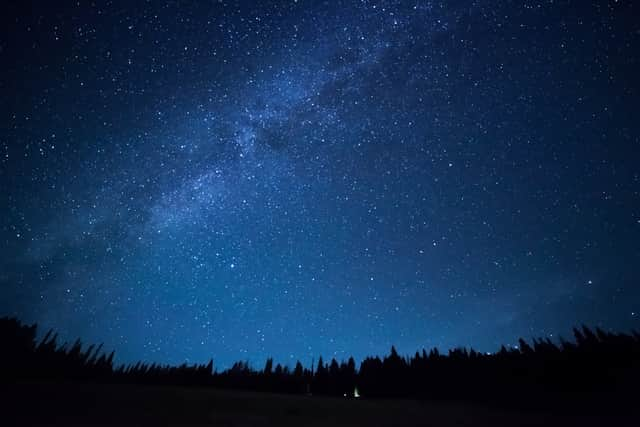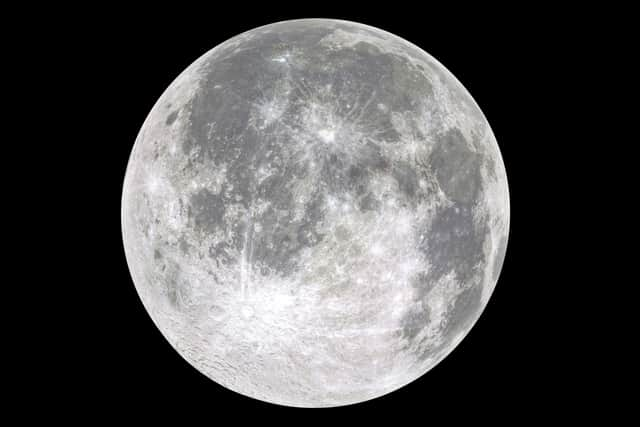March 2023 stargazing guide: When is the next full moon and will there be a supermoon?
and live on Freeview channel 276
As we move closer to March, and finer weather conditions arrive, there will be more night sky events and stargazing opportunities across the UK than ever. From the last chance to see Orion high up in the sky, to twin clusters in Perseus, we have rounded up all the exciting events happening above us this month.
According to Royal Museums Greenwich, as well as Orion, we are also bidding farewell to Sirius (in Canis Major), the brightest star in the entire night sky. Most of the stars in this constellation are visible to the unaided eye even in light-polluted areas.
Advertisement
Hide AdAdvertisement
Hide AdAs we make our way through the year, astronomers won’t be stuck waiting for things to look forward to with an array of events on the way. Highlights of the year ahead include full moons, meteor showers and both lunar and solar eclipses. Other stand out points will be in December when debris from Biela’s Comet will strike earth.
However, stargazers won’t have to wait long at all to spot some exciting events happening above us, March is jam packed with opportunities. So, what are the biggest events coming to the night sky this March? Here’s a breakdown of what to expect.
When is the next full moon?
The next full moon, and final moon of winter, will arrive on March 7 at 12:40pm in the UK, and is sometimes known as a ‘Worm Moon’. The Old Farmer’s Almanac said there will be 13 full moons throughout the year. These are listed below.
- January 6: Wolf moon
- February 5: Snow moon
- March 7: Worm moon
- April 6: Pink moon
- May 5: Flower moon
- June 3: Strawberry moon
- July 3: Buck moon
- August 1: Sturgeon moon
- August 30: Blue moon
- September 29: Harvest moon
- October 28: Hunter’s moon
- November 27: Beaver moon
- December 26: Cold moon
How often does a full Moon occur?
The Royal Museums Greenwich says a full Moon happens roughly every 29.5 days. This is the length of time it takes for the Moon to go through one whole lunar phase cycle.
Advertisement
Hide AdAdvertisement
Hide AdFull night sky calendar for March 2023
March brings Stargazer’s their last chance to see Orion high in the sky for this stargazing season. This is because during the spring months it will be too low on the horizon to be seen. According to Royal Museums Greenwich, next time Orion visits will be in November, but until then we will get a chance to enjoy all the spring and summer constellations.


Here are some more opportunities you will have throughout this month:
- Last chance to see Orion until November 2023. To find Orion, look between Sirius and Aldebaran (a bright reddish star in Taurus)
- Last chance to see Sirius (Canis Major) which is the brightest star in the sky
- Jupiter and Venus will be the brightest planets from the beginning of the month (March, 1-2). The best time to catch them is between 6.30pm and 7.30pm
- Catch a glimpse of the red triangle (Mars, Aldebaran and Betelgeuse) from March 5-26
March moon phases
The Moon’s phases this month are:
- Full Moon - March 7
- Third Quarter - March 15
- New Moon - March 21
- First Quarter - March 29


When is the next supermoon?
Unfortunately, there won’t be a supermoon throughout the month of March. The next supermoon will occur on August 1.
Top Stargazing Tips
Stargazing is easy, you just go outside and look up at the night sky, but to get the most spectacular views, there are a few rules you should follow. The best tip is finding a dark-sky site, and checking the weather forecast before going. Light pollution can often affect how much of the night sky occurrences we see, even more so, cloudy weather conditions make it more difficult to see the stars beyond.
Advertisement
Hide AdAdvertisement
Hide AdIf you are unable to get to a designated dark-sky site, find the least illuminated spot you can where you can see the horizon. Stargazing is such a popular hobby for amateurs and professionals alike, it’s likely there is a club near you, or you may have friends with a similar interest. Finding a buddy or club to join on the cold dark nights is always helpful, and one of the best ways to stay safe when stargazing.
Comment Guidelines
National World encourages reader discussion on our stories. User feedback, insights and back-and-forth exchanges add a rich layer of context to reporting. Please review our Community Guidelines before commenting.
